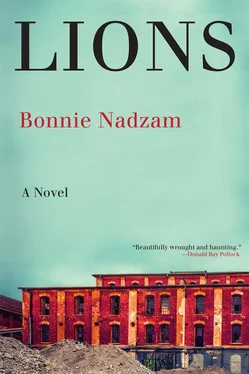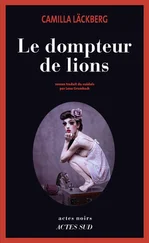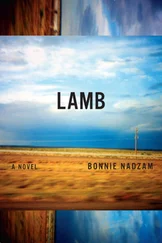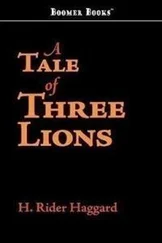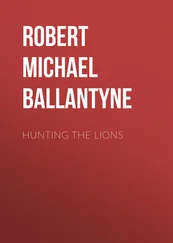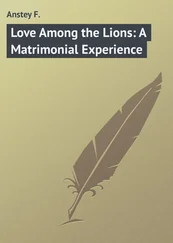“It’s the Karate Kid,” a voice said. Gordon felt his cheeks warm and turned around.
It was Dex Meredith, a big, blond, three-sport athlete from Burnsville, on his way to some college in California. He was standing beside a short guy from school, a baseball player with reddish hair. Gordon thought his name was Ryan.
“Don’t let us stop you.” Dex put up his hands.
Gordon walked straight toward them, reached overhead for the shop door, and pulled it shut. He stood with his back against the door.
“Sorry man,” Dex called out. “You looked like the Karate Kid.”
Gordon said nothing.
“He really did, didn’t he?” Dex said to his buddy.
The other guy was still laughing.
“Guy is just like his dad,” Dex said. Gordon could tell by his voice that they were walking away. “They even look the same.”
“Got to respect him for one thing, though.”
“Nope, him and Leigh haven’t done it yet. Something about a family curse: welding torch for a dick.”
“Shit. I would have done her in, like, seventh grade.”
“I know, I know.”
For the next three days, Gordon sat in the shop with the power off, the coffeepot on, and a stack of paperbacks. He knew he was disrupting a sort of ceremony of his father’s — the paperbacks were to be read after work, after you’d washed your hands and eaten, and not before. But what was that rule but an arbitrary preference. After three nights, John Walker returned from the north in time for dinner.
He sat with Gordon and Georgianna at the kitchen table eating pork chops from one of Dock’s hogs, sugary applesauce from a jar, and frozen peas cooked in butter. There was a little sunburn on John’s cheekbones and his lips were chapped. He looked across the table at Gordon and smiled.
“The difficult thing with welding that pipe,” he said, “will be the tie-ins coming into and going off the tacks.”
Gordon looked out the window.
“In the morning,” John said, “we’ll turn up the grinder and I’ll show you what to do.”
Georgianna glanced at her husband and shook her head.
Gordon was aware of the sudden silence, and that his parents were waiting for him to say something, or look at them. He kept his gaze pointed out the window. “I was thinking maybe I need some time off from welding.”
John looked down at his plate and cut his meat.
He did not speak again at the table, and when he was done he walked outside. Over the next four days he and Gordon would speak little, working together not at all. Georgianna followed John outside and Gordon scraped the plates and washed them, watching his parents watching the magpies.
There’s one about an old homesteader with hair the color of milk poured out around her waist and knees and rippling across the hard-packed dirt floor. It’s after this spirit that May Ransom named the diner on Jefferson Street. They say that Lucy Graves never leaves her house, its walls years ago regularly whitened with unslaked lime from the riverbed now dry and brown as stacked matches and surrounded by burnt gardens of splintered glass and broken farm machinery. You can find her old place north of the Gas & Grocer, back up the Monger Road and half a mile behind the coulee among the weeds.
If you’re up there and pay attention — aching blue sky overhead, mute roar of eighteen wheelers on the highway behind you, minuscule flies swinging in loose knots over the tops of Queen Anne’s lace — continuity stops. All time reduces to one moment, this moment, all moments the same one, this one, and there she’ll be before you, plain as the hands at the ends of your arms.
All day, every day, she crochets elaborate spiderwebbed doilies of her own hair, weaving in bird feathers, seeding grasses, the shoelace tails of field mice, and tiny braids of fur from the hides of dead cattle, dead deer, and dead rats. She’ll tell you about it, what brought all the settlers out and for a time trapped them on his huge, wide-open ground: misguided longing.
They told us stories, she’ll tell you. And we believed them. Don’t believe them. Use your eyes. Use the five good senses God gave you. Use the six.
She’ll tell you they were looking for paradise, for they’d been promised nothing less. It was a story they repeated to each other so often in their journey west that even as they laid eyes on the high desert, they believed it, still. All around them, at last, a spacious country — newly cleared — in which to live as God intended men and women to live, to manifest the living Word with every pass of the plow, to amass a little of the abundance the good Lord had assured them, and to show the rest of the world what such blessings and prosperity looked like.
When it grew hot, however, and the rains stopped, the sun baked the ground. They scoured the greasewood plain and shallow rivers for as many creatures as they could find, kill, and eat. The men named their guns. The women who had lost their children named the birds and stones and missing trees, the folds of country rising up to the north into whipped peaks of dust and cracked rock.
All the while she speaks, this Lucy Graves still believes it’s sometime in May 1870 and she’ll politely ask for passage back home. Going west, she’ll tell anyone who will listen, was a terrible mistake.
“I could be that woman,” May Ransom would sometimes say to the groups of college girls passing through on their way back to the Front Range when they read the Lucy Graves story on the backs of their laminated menus. But they never asked where May was from, and they didn’t need further explanation. They could see the town they had stopped in, and they could imagine living there.
The diner was a square building of white painted cinderblock, yellow curtains, and a storm door. Tiny white Christmas lights all year, white vinyl flowers glued to a green vine stapled above the front windows. A pale red-lit CAFÉ sign hanging outside.
Inside, May served fried chicken hearts, biscuits with thick yellow gravy, liver and onions, meat loaf, chicken fried steak, canned green beans, canned corn, homemade hash and mashed potatoes, coffee, juice, eggs, hotcakes, chocolate cake with lard icing, and sticky fruit and pudding pies. A thin spread of butter went on every sandwich, and she designed the most incongruous combinations for each: grape jelly on sliced ham; peanut butter, pickle chips, and bologna; coleslaw, cream cheese, and cucumber on grilled hamburger buns. Genius born of necessity, she said, since the Sysco truck came only once every four weeks — that was with even less frequency than the beer trucks brought Coors and High Life to Boyd’s bar.
On this particular afternoon, Boyd sat on a swivel stool with a cold one he’d brought in from across the street, the ash-colored bruise dark on his face. The buttons on his shirt were buttoned wrong. May was behind the counter prepping for dinner, peppering chicken thighs laid out on two giant cookie sheets. Leigh was covering the tail end of the lunch shift and still had one woman finishing her sandwich. With every work shift, she had the increasing sense of inhabiting a reality in which she didn’t seem to fit; the very edges of the counter and tables, the laminate floor, the door swinging open and closed, even the weight of her own face — it all seemed to punctuate a sense that the world was not what it seemed, not what she was relying on it to be. It was less a feeling to investigate than one to dispense with. It was a symptom of being in Lions. So as she wiped down the empty tables, waiting on the last woman, she counted and recounted her tips and added them to the growing tally she was keeping in her head, alongside the number of days until she left. There was something reassuring in the counting, itself. And when she had her totals: $788, sixty-three days, she began to amass a mental list of all the things she would get in college, where at last she’d be in the world. Sundresses. Silver jewelry. A turquoise ring. A new bedspread on a big new comfortable bed. New makeup. Fall sweaters. Boots. A real haircut.
Читать дальше
